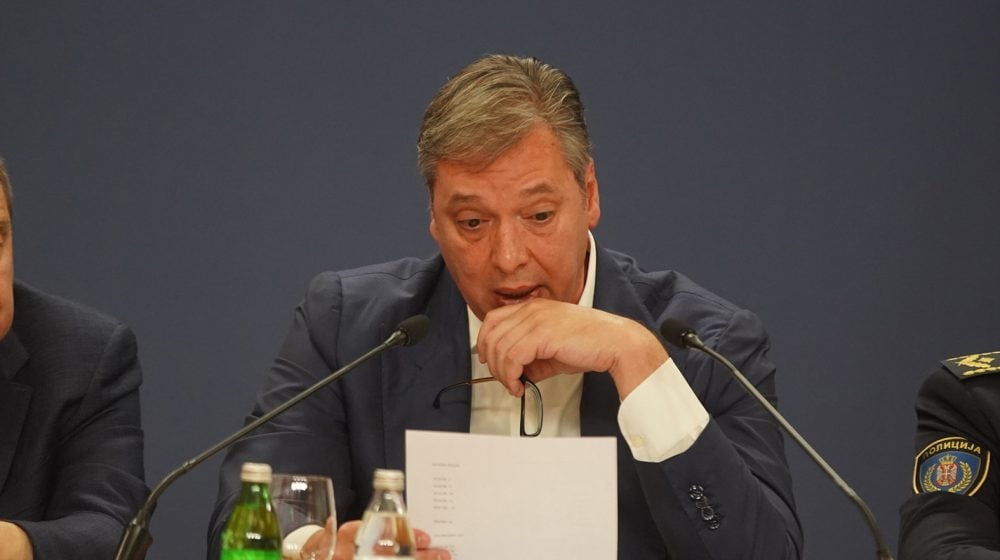
Foto: ATA
A document is being prepared on how the future government, possibly led by students and the academic community, would carry out lustration.
As reported by Danas, several documents are circulating that would have to be adopted as a kind of official policy, either by the student list or by the student movement, to be implemented after the possible fall of the regime.
Vetting has been the most expensive word in Serbia for more than 25 years, since the October 5 revolution, when politicians and members of the regime from the 1990s returned to power, and it is still the main word today. Those responsible for the worst corruption, regarded as autocrats and dictators who arrest and beat their own people.
Danas’ interlocutors, active participants and witnesses to what happened with the attempts at lustration of the Socialist Party of Serbia, the Serbian Radical Party and the criminal political parties to which Aleksandar Vučić and Ivica Dačić belonged in the 1990s, talk to Danas about what was missed 25 years ago and why, and why society faced such consequences, while students are reopening the question of lustration.
“The environment of godfatherism, nepotism, and cronyism swallowed up the lustration law.”
According to lawyer Siniša Nikolić, head of the cabinet of murdered Prime Minister Zoran Đinđić, who was instrumental in the October 5 revolution, nepotism, kinship, and brotherhood in Serbia have swallowed up the lustration law in 13 years.
All that remains of it are buttons in the form of historical records that it ever existed. One of the main pre-election promises of the DOS coalition and the Agreement with the People, which this coalition announced exactly 25 years ago, has never been fulfilled. It brought together a coalition of politically diverse parties with the aim of overthrowing Milošević’s regime, and after taking power, it asked its future allies for their unconditional support for lustration, says our interlocutor.
Of course, everyone was declaratively in favor of this, he adds. Unfortunately, the lustration law, preoccupied with the distribution of positions after the victory and the conflicts that followed, as well as with cleaning up the mess that had accumulated in all segments of society, fell into the background. As prime minister, Đinđić initiated the process of preparing a package of laws on the post-war regulation of the country, which included the lustration law, the extra profit law, and the conflict of interest law. The law on extra profits yielded modest results due to the great reluctance of the ruling coalition, while Prime Minister Zoran Đinđić did not live to see the adoption of the lustration law, emphasizes Siniša Nikolić.
Following the extraordinary circumstances, the Law on Responsibility for Human Rights Violations, commonly known as the Lustration Law, was adopted in June 2003.
The Act covers all holders of public office in the period from March 23, 1976, the date of entry into force of the International Covenant on Civil and Political Rights, with a validity of 13 years. This period expired in June 2013. During the period of validity of the law, not a single person was lustrated in Serbia. The law stipulated that decisions on individuals who had violated human rights and penalties for these acts would be handed down by a special commission, which was to be completely independent in its work, and whose selection and composition were to ensure impartiality, objectivity, and effectiveness, explains Danas’ interlocutor.
However, the commission was never established in its full capacity.
The politicians who led the country after the assassination of Prime Minister Zoran Đinđić from June 2003 to June 2013 did not activate the tools at their disposal to try to organize Serbia in a democratic and civilized manner. Wasn’t lustration carried out out of consideration for their then coalition partners, relatives, friends, and wealthy individuals who could have fallen under the influence of the law, Nikolić points out.
Its absence, he concludes, has led to today’s renewed talk of dictatorship, the collapse of the rule of law, the closure of the media, and the trampling of human rights.
During this period, the Czech Republic carried out one of the most thorough and rapidly implemented lustration processes in the region. Thousands of people, former collaborators of the communist secret police and party officials, were barred from returning to public office. In Poland, all judges and prosecutors had to sign a declaration that they had not collaborated with the secret services and communist authorities. Those who lied automatically lost their positions. In Romania, the files of the notorious secret police, the Securitate, were made public, resulting in thousands of people being identified as collaborators and participants in the violation of the human rights of their fellow citizens, says Siniša Nikolić.
In East Germany, after reunification, he adds, every citizen could request and receive access to their Stasi police file. Tens of thousands of people were investigated, and many lost their government jobs with no chance of getting them back.
And Serbia? Serbia is waiting for a new opportunity, there is more and more material and candidates, but the main prerequisite for this is the arrival of people who want to carry it out. Regardless of relatives, godparents, and businessmen. The law exists, it needs to be slightly adapted and the deadline extended. It is difficult to say whether we will ever implement it. However, this does not stop us from trying, concludes Siniša Nikolić.
“Even if there is political will, lustration is difficult to implement in practice.”
According to historian Dragon Popović, lustration is a popular measure among opponents of autocratic regimes.
It is considered an effective way to protect democracy from those who have proven that they abuse the system in order to destroy it from within. Although there is no doubt that it can be very useful, there are practical reasons why it is not often used in post-authoritarian systems, Popović tells Danas.
First, he notes that lustration is not easy to implement.
Even when there is political will, it is difficult to implement in practice. For example, lustration must meet human rights requirements, including judicial protection for people who may have been unjustly lustrated. This puts a heavy strain on the system and makes it even slower and more inefficient, which paradoxically contributes to the further decline of the rule of law rather than its strengthening, explains the interviewee for Danas.
Therefore, he believes that lustration requires an effective structure in public services and state institutions.
It is also necessary to carefully consider where the limits of lustration measures lie. For example, should lustration interfere with certain fundamental human rights, such as the right to be elected? These are serious dilemmas and require broad public debate. This does not mean that any lustration or “vetting” measures should be abandoned. With minor legal changes, disqualification from public office could accompany court proceedings much more frequently. This would ensure both judicial justice and protection against future corruption of the system from within, says Popović.
Therefore, he emphasizes, we must consider how to remove people who have violated human rights from the system, while at the same time citizens must adjust their expectations.
No one has a magic wand, and not all progressives will be punished because it is physically impossible, nor will absolute justice prevail after the fall of Vučić’s government. This is a process, and we all need to be patient and realistic in our desires and expectations if we want to build a serious system in which no new Vučić will be possible, says Dragan Popović.
Bojan Pajtić: We should be guided by a combination of the Polish and Czech models
These days, the question arises as to whether lustration is even possible if it had not been carried out 25 years ago. The answer is simple – without lustration, Serbia will never become a well-ordered, legal, democratic state, says Bojan Pajtić, former president of the Vojvodina government, in an interview with Danas.
Zoran Đinđić wanted lustration, he recalls, after the fall of Milošević’s regime, following the example of the former Warsaw Pact countries.
Unfortunately, he did not have a majority in the DOS for such a move. If lustration had taken place, i.e., a ban on public office for those who had participated in a government that suppressed human rights and freedoms, we would not be living today in a Serbia where Milošević’s information minister has assumed absolute power. I believe that all opponents of the regime understand this today, but this was not the case in 2000. We should be guided by a combination of the Polish and Czech models – lustration must include not only political but also security, media, educational, and other structures that serve evil (as happened in Poland), and it must be swift, effective, and automatic (as in the Czech Republic), concludes Bojan Pajtić./Danas/

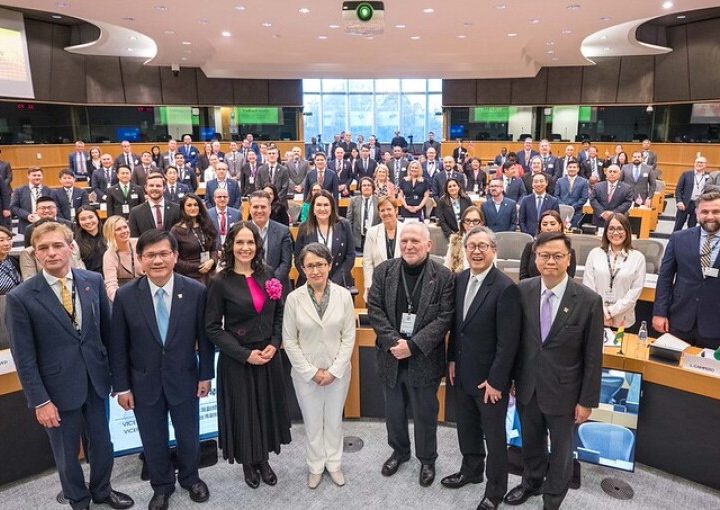 Japan and Europe come together in support of Taiwan
Japan and Europe come together in support of Taiwan 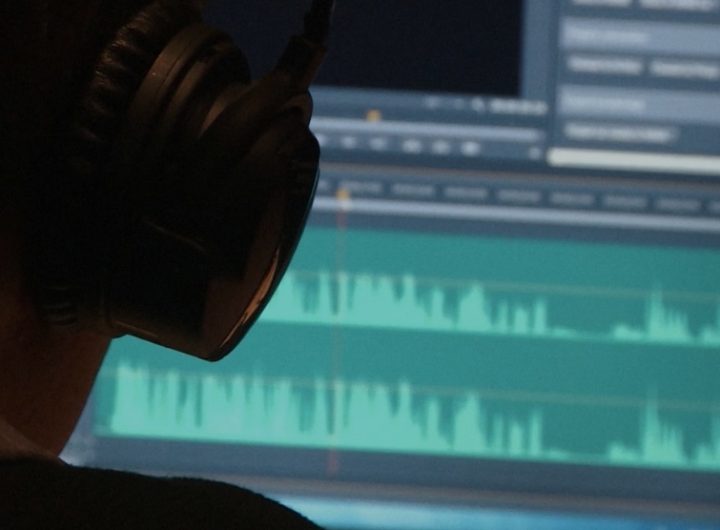 BIRN journalist: Media workers in Serbia exposed to digital attacks and secret surveillance – most cases go unnoticed
BIRN journalist: Media workers in Serbia exposed to digital attacks and secret surveillance – most cases go unnoticed 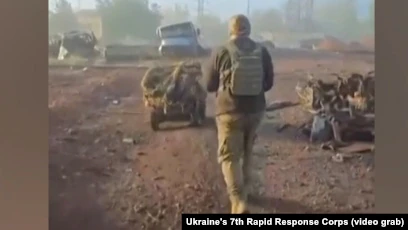 Robot Soldiers: Ground Drones On The Ukrainian Front Lines
Robot Soldiers: Ground Drones On The Ukrainian Front Lines 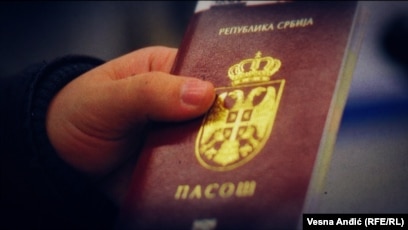 Possible security risks’ in serbian passports for russian citizens
Possible security risks’ in serbian passports for russian citizens 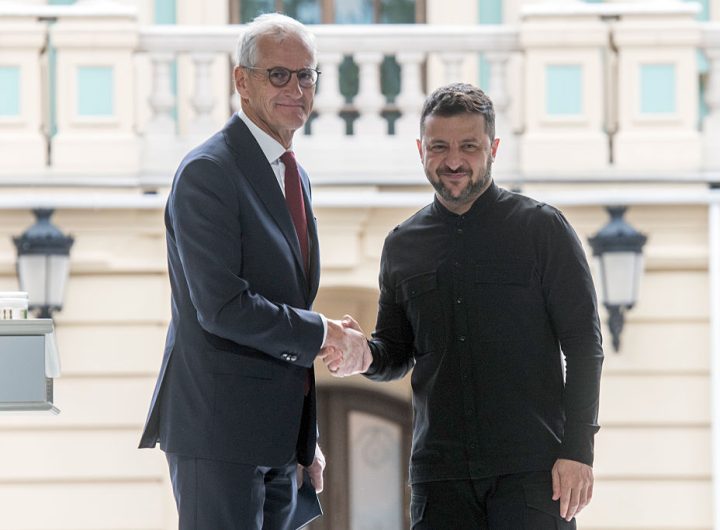 Norway urged to tap €1.8tn fund to help EU unlock Ukraine loan
Norway urged to tap €1.8tn fund to help EU unlock Ukraine loan 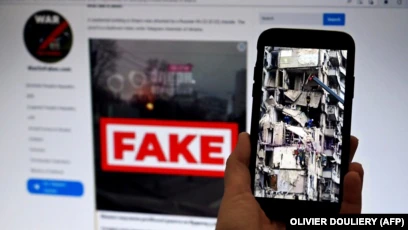 EU Launches ‘Democracy Shield’ to fight russian disinformation and protect electoral process
EU Launches ‘Democracy Shield’ to fight russian disinformation and protect electoral process